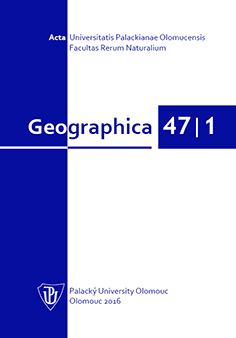Geographica 47/2 (2016)
|
Acta Universitatis Palackianae Olomucensis |
 |
| Back to contents | Zpět na obsah |
National and class aspects of electoral support for the Communist Party of Czechoslovakia (1925–1935)
Ondřej Král
Full text: ![]() PDF (7 MB)
PDF (7 MB)
Received: 14 June 2016
Accepted: 1 December 2016
Abstract
In the political system of the First Czechoslovak Republic the Communist Party of Czechoslovakia (CPC) presented itself as an internationalist party that fulfi lled one of the main goals of the Communist International. This resulted primarily in the fact that it was the only major political party at that time that actually gained the support of citizens of both Czechoslovak and German nationality. This article thoroughly examines the electoral support for the Communist Party in terms of the nationality of its voters. In the Czech environment, the Communist Party mainly attracted the attention of workers in industrial regions. In the German environment, this phenomenon is similar, except that in the elections in 1935, half of the former Communist Party voters found the Sudeten German Party a better alternative. This leads to the idea that voters for the Communist Party were also German nationalists, who could understand the internationalism of the communists as a means of breaking up Czechoslovakia before Sudeten German Party was founded. The aim of this paper is to answer the question on importance of nationality and also of class origin of CPC voters.
Key words
electoral geography, electoral behaviour, communism, nationalism
Last modified 08/04/19 | ↑ top